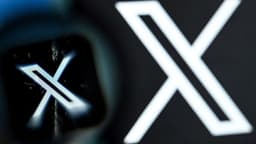Home / Technology / Tech Group Sues Virginia Over Strict Social Media Law for Minors
Tech Group Sues Virginia Over Strict Social Media Law for Minors
18 Nov
Summary
- Tech group NetChoice sues Virginia over new law restricting minors' social media use
- Law requires platforms to limit minors to 1 hour per day without parental permission
- Lawsuit claims law violates free speech and poses privacy/security risks from age verification

In November 2025, the tech industry trade group NetChoice filed a lawsuit against the state of Virginia over a new law that will restrict minors' access to social media. The law, signed by Governor Glenn Youngkin in May 2025, is set to go into effect on January 1st, 2026, and will require social media platforms to prevent kids under 16 from using their sites for more than one hour per day unless they receive permission from a parent.
NetChoice's lawsuit claims the law violates the First Amendment by placing "unlawful barriers" on Virginians' ability to access free speech online. The group also alleges the law's age verification requirements could pose privacy and security risks, citing a recent data breach at Discord that exposed government IDs of around 70,000 users.
According to NetChoice, the law's "commercially reasonable methods" for age verification, such as prompting users to enter their birth date, could potentially be expanded by Virginia to include more invasive measures like submitting government IDs. The group argues this would burden minors' ability to engage with online speech.
"Virginia must leave the parenting decisions where they belong: with parents," says Paul Taske, the co-director of the NetChoice Litigation Center. "By asserting that authority for itself, Virginia not only violates its citizens' rights to free speech but also exposes them to increased risk of privacy and security breaches."




